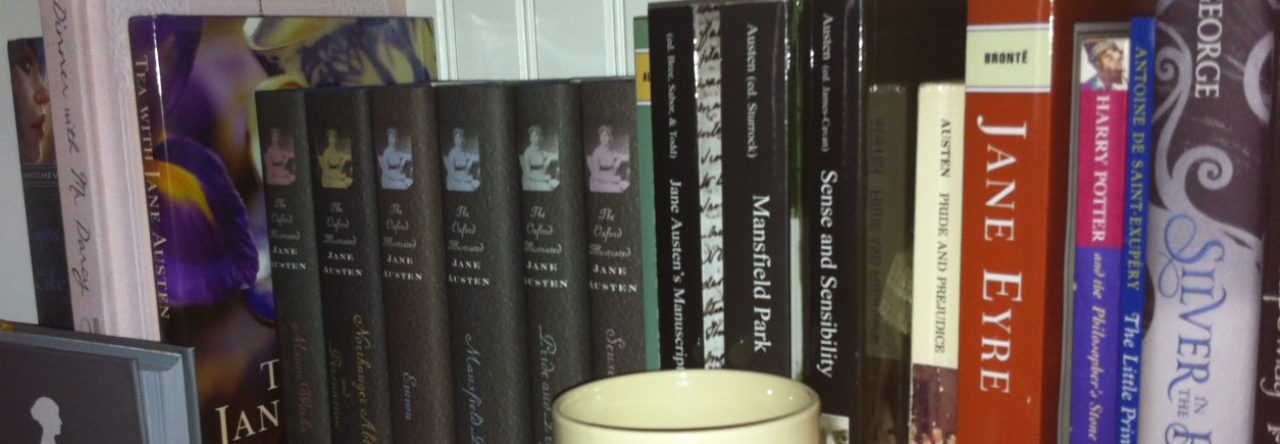
When stress kicks in, we all have different ways of coping. Some go for yoga, some for frozen yogurt. Some need a tearjerking song, some need a series of cat videos on Youtube. Some brew a cup of soothing tea, some throw back a beer.
Me? I grab Harry Potter.
Specifically, I grab my battered copy of Harry Potter and the Philosopher’s Stone, bought on a trip to Canada (when my original Sorcerer’s Stone was lent out and never returned), in times when I’m stressed about a life transition.
Harry Potter is a big part of the reason I’m a storyteller. Unlike other Potter fans, I did like to read before I ever saw those books (as my Bio Page will attest to). But it was the fantasy, the humor, and the intricate plots of the Potter novels that lit up my imagination and made me want to write stories, not just read them. And it’s been a huge part of my life in other ways. The series as a whole, book and film, has seen me through elementary school, high school, college, and now with the new play and companion films, my adult life. I could go on and on (and on and on).
But to get to the point, I found my thoughts turning back to the first book last night as I was meditating on what I had to do to get ready for the Startup Institute program. It just popped in there: ‘I should read Philosopher’s Stone again.’ As if I didn’t have other things I should be doing.
Which made me think of the other times I’ve turned to this volume in the midst of stress: My first week of high school, my first year of college, studying abroad in Spain, the week before graduation.
All life transitions.
But why did I instinctively choose this book in those times of stress? Was it just because of the nostalgia factor? Escapism? Why not the film?
Here’s the thing though: for all that the Harry Potter and the Sorcerer’s Stone film is one of the most faithful book-to-film adaptations, the book contains an element that the film lacks:
Stress.
Now, why would it be a good thing to read about stress when I’m stressed? Hear me out.
Whatever title you use, the first volume of the Potter series is all about the introduction to the Wizarding World. On one hand, this elicits wonder and joy at the magic, hidden just out of reach of our world. But for the main characters, it also elicits quite a bit of worry.
Ron, who simultaneously wants to stand out from his brothers and make his family proud.
Hermione, who wants to prove herself as a witch.
Neville, who is constantly made to feel he doesn’t belong in Gryffindor because of his timidity and poor performance.
And, most of all, Harry. Harry, who has never belonged in the place he’s supposed to call home, who was barraged by the Dursleys just for asking questions, needs to do well at Hogwarts so he can stay. So his constant fear is that he’s going to get sent back.
Now, some of this is in the film. Harry wonders about making a fool of himself at Quidditch, and after he’s caught on his broom, it certainly looks like he’s going to get in trouble, maybe even expelled as Hooch had warned. But filmgoers aren’t immersed in Harry’s fears the way readers were in the book:
- In the Sorting Hat scene, Harry and Ron believe they have to be tested in front of the whole school. Even after he finds out it’s just the hat, he feels sick throughout the whole sorting ceremony.
A horrible thought struck Harry, as horrible thoughts always do when you’re very nervous. What if he wasn’t chosen at all? What if he just sat there with the hat over his eyes for ages, until Professor McGonagall jerked it off his head and said there had obviously been a mistake and he’d better get back on the train? (Chapter Seven: The Sorting Hat)
- When he gets caught on his broom without teacher supervision, and McGonagall goes to find “Wood,” Harry thinks she’s going to find a stick to beat him with. (He is in fact the lovely Quidditch captain Oliver Wood. Did Rowling make that his last name just so she could have that line, I wonder?)
- Malfoy purposely tries to get Harry expelled by challenging him to a duel after curfew, right before they stumble upon the three-headed monster dog Fluffy.
- Most importantly, in the aftermath of losing 50 points for Gryffindor, along with Hermione and Neville, Harry is absolutely shunned by most of the school, including his Quidditch team. If not for Ron, Harry would feel like he was back at the Dursleys all over again.

Poor dear. Don’t you just want to hug him?
There’s also a lot more investment in how Harry has to adjust to Hogwarts at the beginning. There’s Peeves, Filch, and Malfoy to avoid, moving trick staircases to be traversed, teachers who range from stern McGonagall to boring Binns to outright antagonistic Snape. Hogwarts may have magic, but that doesn’t make it less stressful.

But Harry finds comfort in Ron’s, Hagrid’s, and later Hermione’s friendships, as well as in learning more about his parents. He starts to adjust and do well in his classes. He finds strength in Quidditch, and in learning that doing the right thing is worth it, even if it gets you into trouble. I so wish this particular monologue for Harry had been in the film:
“SO WHAT?” Harry shouted. “Don’t you understand? If Snape gets hold of the Stone, Voldemort’s coming back! Haven’t you heard what it was like when he was trying to take over? There won’t be any Hogwarts to get expelled from! He’ll flatten it, or turn it into a school for the Dark Arts! Losing points doesn’t matter anymore, can’t you see? D’you think he’ll leave you and your families alone if Gryffindor wins the House Cup? If I get caught before I can get to the Stone, well, I’ll have to go back to the Dursleys and wait for Voldemort to find me there, it’s only dying a bit later than I would have, because I’m never going over to the Dark Side! I’m going through that trapdoo tonight and nothing you two say is going to stop me. Voldemort killed my parents, remember?” (Chapter Sixteen: Through the Trapdoor)

So, seeing Harry traverse the stress of this new place and new challenges to come into his own, plus the nostalgia and the magic and the humor of the novel, should make it clear why I have found such comfort in it time and time again when I myself have stress.

This technique actually falls in line with a long-utilized practice known as bibliotherapy. According to Wikipedia, this is defined as “an expressive therapy that involves the reading of specific texts with the purpose of healing.” So basically, psychological patients can be prescribed a certain book to read that resonates with their own situation, giving the patients catharsis and understanding.
And this can also be self-guided, as there are sites like LitTherapy for a person to find a specific book matching a problem he or she might have. The Harry Potter series is listed for 13 different “ailments” by the site, including “Searching for Strength” and “Overcoming Hardship,” which it would fall under for me.
This is why, when moral guardians get antsy about certain children’s books containing mature themes, children themselves are generally not as antsy. Children want to have a way to talk about certain things that stress them out, and the stories they access through books and film are important in this regard.
An excellent recent example is this middle school teacher who read The Seventh Wish by Kate Messner to her class. This was a book I helped to produce while working at Bloomsbury Children’s, and I was so in awe of how the author grappled with themes of desperation and addiction happening close to home in a book for middle school students, without letting the story get too dark. Instead, it was gentle, funny, and incredibly relatable.
The Harry Potter series too, particularly the later volumes, has faced allegations of being too mature in places. But facing such issues as prejudice, depression, physical and mental illness, bullying, war, and death with sensitivity, honesty, and love is precisely why readers like me continue to come back to this series. When things seem bleak, we find characters who are going through the same thing. We see them survive it, and know that we can survive it too. And feel a little less alone.
So, next time you feel stressed, a good book might be something to consider.
As for me?
